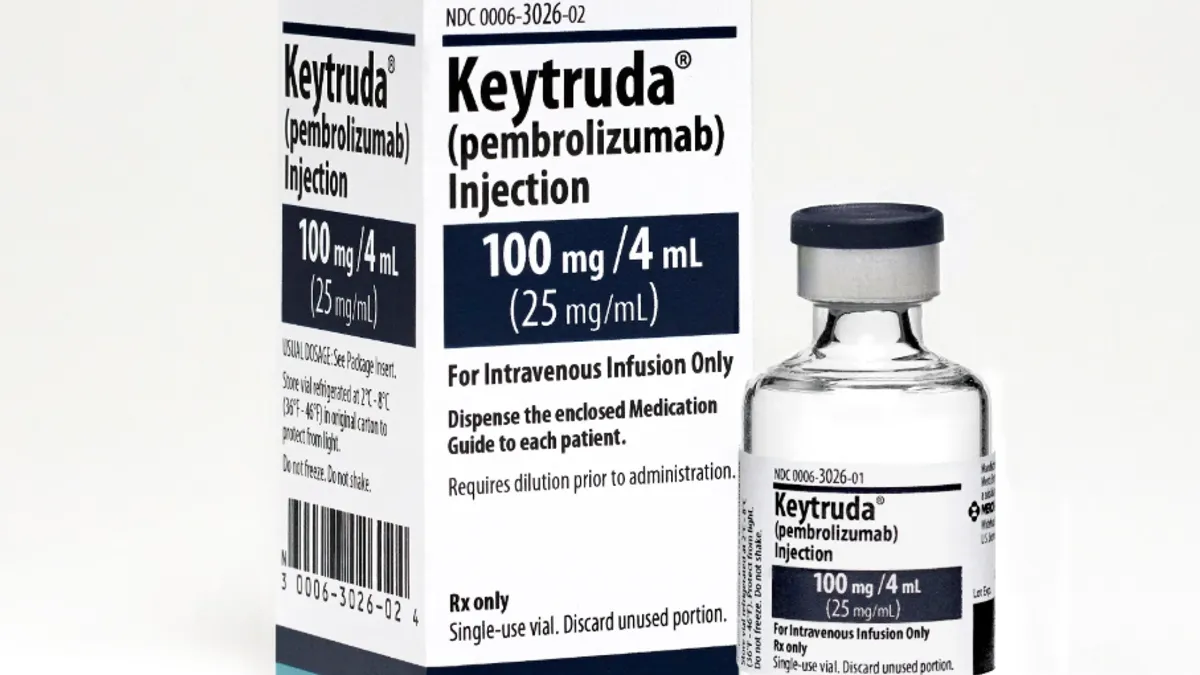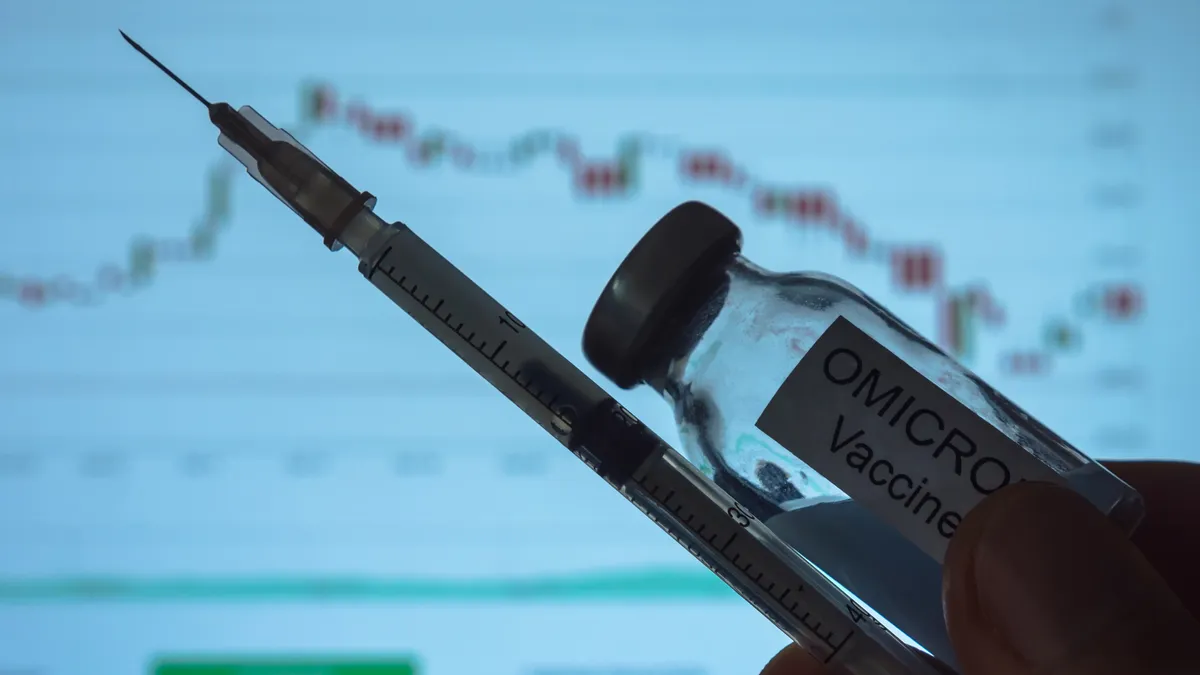Precision medicine is changing the way that healthcare is delivered, moving treatments away from a one-size-fits-all approach and toward tailored treatments.
The Precision Medicine Initiative, announced by President Barack Obama during his 2015 State of the Union address, describes precision medicine as “an emerging approach for disease treatment and prevention that takes into account individual variability in genes, environment, and lifestyle for each person."
The term precision medicine is now preferred over personalized medicine, which can be misconstrued to mean treatments designed uniquely for each person. The National Research Council prefers the term precision medicine because it describes most accurately the focus on identifying approaches and treatments for groups of people with a particular disease.
With advances in technology and breakthrough therapies in the pipeline, analysts expect the precision medicine market to grow rapidly, with an expected CAGR of 14.5% to reach $144.4 billion by 2026.
Integral to precision medicine is the field of pharmacogenomics, which seeks to understand how genetic differences influence the way a person responds to medicines. The use of genetic tests to assist with treatment decisions and get more effective treatments to patients is becoming more widespread.
Indeed, companies such as 23andMe, which has gathered data from millions of customers has shared that data — with patient approval — with several pharmaceutical companies. For example, the company sold genetic data to GlaxoSmithKline, which could help the company identify people at risk of a disease, and also evaluate how and if patients are likely to respond to a treatment, which would give the pharmaceutical company insights into which targeted treatments to develop.
Examples of where precision medicine is being used span cancer, regenerative medicine, and identification of what causes a fever — bacteria, fungus, or virus.
Targeting Disease Through Genomics
As understanding of genes and how they affect health increases, researchers are coming up with novel new ways to target diseases that affect specific patient populations.
Precision medicine is being used in several cancer treatments today, targeting molecular markers found in certain types of cancers. Probably the best-known example is Herceptin, a monoclonal antibody directed against the human epidermal growth-factor receptor 2 (HER2).
Other breakthroughs in oncology and precision medicine include Keytruda and Opdivo. Merck’s Keytruda, an immunotherapy that was approved in 2017 to treat patients for several types of cancer, including melanoma, non-small cell lung cancer (NSCLC), head and neck squamous cell cancer, and classical Hodgkin lymphoma, among others. Bristol-Myers Squibb’s Opdivo was also approved in 2017 to treat patients with NSCLC that has spread and has not responded to chemotherapy.
 Precision medicine goes further by also gaining insight into how a treatment affects the rest of the patient’s body, looking at dosage that will most benefit the patient while causing minimal side effects. Such research also takes into account the patient’s environment, including diet and exposure to toxins, and potential interactions with other drugs the patient may be taking.
Precision medicine goes further by also gaining insight into how a treatment affects the rest of the patient’s body, looking at dosage that will most benefit the patient while causing minimal side effects. Such research also takes into account the patient’s environment, including diet and exposure to toxins, and potential interactions with other drugs the patient may be taking.
In the field of mental illness, a GeneSight test has been used to evaluate genetic variations that influence response to antidepressant and antipsychotic medications. One study looked at whether there were cost savings and adherence improvements based on combinatorial pharmacovigilance guidance in patients who had moved to a new or additional psychiatric medication. The results showed patients who received the test realized savings in medication costs and had better adherence.
Precision Medicine and Research
A growing area of precision medicine research is in stem cells amid recognition that patient-derived induced pluripotent stem cells can help to summarize aspects of disease processes and their potential to identify novel therapeutic targets. In October 2019, Johns Hopkins University School of Medicine, The New York Stem Cell Foundation (NYSCF) Research Institute, and Bloomberg Philanthropies announced a program to advance precision medicine research. The objective is to establish a collection of disease models to researchers worldwide to support real-world applications of precision medicine.
The objective is to use stem cells as a “biological avatar" to gain better insight into the basis of disease. Researchers will use stem cells generated by NYSCF for deeper diagnosis of a wide range of diseases, including Alzheimer’s, multiple sclerosis, chronic renal failure, and a variety of cancers.
Indeed, tissue engineering, also referred to as organs-on-a-chip, is having an important impact on precision medicine. This multi-channel 3D microfluidic cell culture chip replicates the activities and response of entire organs and can, at least in principle, be personalized to reflect an individual’s physiology. This would allow for an individually based assessment of the safety and efficacy of a drug and personalized approaches to managing and treating disease.
Technology also offers a huge promise in precision medicine through biosensors and digital biomarkers. New wearables are making it easier to measure fluids such as sweat, breath, and saliva. And the rise of wearables, such as smartwatches, adds to the knowledge source about patients. Combined with data from biosensors, these wearables allow scientists to track real-time patient data at scale. And when these data are analysed with the help of AI, it provides new insights into a patient’s current and future health.
Precision Medicine and Big Data
For precision medicine to make real breakthroughs, what is needed is access to massive amounts of data.
Molecular insights company Foundation Medicine has been building a large database containing the genomic profile of 300,000 cancer patients.
But since precision medicine goes beyond genomic data to also incorporate lifestyle, other illnesses and treatments, and other patient data, capturing this data is also paramount. To this end, Foundation Medicine is working with Flatiron Health to bring together genomic data with data from electronic health records of hundreds of thousands of patients. Together, the companies have developed one of the largest de-identified clinical data sets in the United States.
The next challenge was to link the data while ensuring patient privacy. By generating patient-specific tokens representing patients in the companies’ databases, they were able to create de-identified, patient-level data.
Meanwhile, GSK is focused on using the 23andMe data for its ongoing research into several drugs. The company is looking to develop drugs for patients with Parkinson’s disease who express a mutated LRRK2 gene, which has been found to be the most common genetic contributor to the disease. With the data, GSK is able to trace patients who are susceptible to Parkinson’s as well as those with the disease.(PV)
~~~~~~~~~~~~~~~~~~~~~~~~~
Executive viewpoints
 Jordan Clark
Jordan Clark
Chief Commercial Officer
Diaceutics PLC
Facing the Challenges of Precision Medicine
The diagnostic ecosystem is broken today, with as many as 50% of eligible patients not receiving the appropriate testing, preventing them from getting the right targeted therapies and standing in the way of better outcomes. The siloed thinking and limited investment in diagnostic commercialization by pharma, payers, diagnostic companies, and physicians leads to slow test adoption, lack of adequate reimbursement, limited biomarker education, and lags in treatment guideline updates, which all impede optimal treatment.
Data-Driven Insights
Data-driven insights are key to understanding the complex patient testing journey and to uncovering the testing behaviors that are negatively impacting patient outcomes. Data can be used to segment prescribers to deliver focused education about the benefits of targeted therapies. Additionally, data informs the testing landscape and how test availability impacts test adoption and turnaround time, two important factors in ensuring physicians can make the best treatment decision for patients.


















